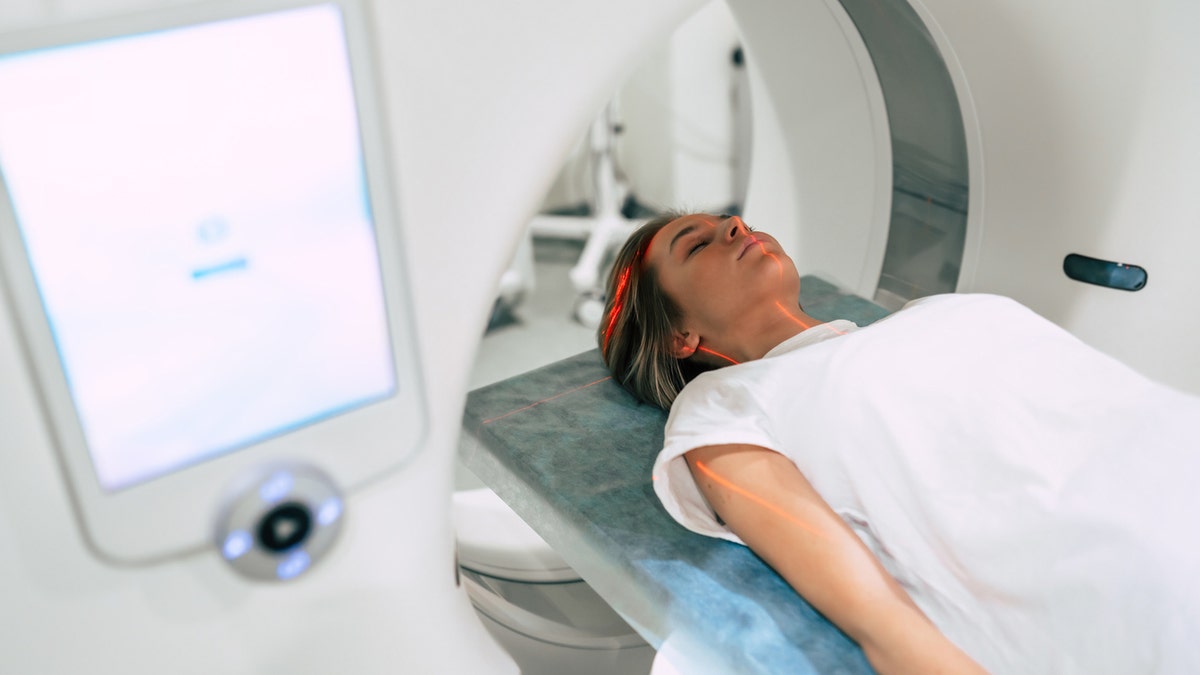Previous research has shown that vitamin D deficiency can increase the risk of multiple sclerosis (MS) — and a new study suggests that supplementing it in high doses could help reduce symptoms.
The study included 303 adults in France who had experienced clinically isolated syndrome (CIS) — which is a single, initial period of neurological symptoms that could lead to MS — within the last 90 days.
One group of participants took high doses (100,000 IU) of cholecalciferol (vitamin D3) every two weeks for 24 months.
‘LIQUID GOLD’ COULD BRING NEW HOPE TO MULTIPLE SCLEROSIS PATIENTS, STUDY SUGGESTS: ‘PROFOUND BENEFIT’
Among that group, 60.3% experienced a relapse of symptoms or new or enlarged lesions in MRI scans.

One group of participants took high doses (100,000 IU) of cholecalciferol (vitamin D3) every two weeks for 24 months. (iStock)
In comparison, 74.1% of those who took a placebo experienced those same effects — which is a “statistically significant difference,” wrote the researchers, who were from CHU Nîmes, Université Montpellier and multiple sclerosis centers in France.
The findings of the double-blind, randomized study were published in the journal JAMA.
NEW BLOOD TEST DIAGNOSES ALZHEIMER’S DISEASE AND MEASURES HOW FAR IT’S PROGRESSED
“Oral cholecalciferol 100, 000 IU every two weeks significantly reduced disease activity in CIS and early relapsing-remitting MS,” the researchers wrote.
“These results warrant further investigation, including the potential role of pulse high-dose vitamin D as add-on therapy.”

Among patients who took the vitamin D supplements, 60.3% experienced a relapse of symptoms or new or enlarged lesions in MRI scans, fewer than those who did not take it. (iStock)
Bruce Bebo, executive vice president of research at the National MS Society in Oregon, was not involved in the research but commented to Fox News Digital on what he described as a “well-designed study.”
“These findings suggest that high-dose vitamin D may be a promising approach for reducing disease activity in the very early stages of MS,” he said.
Previously published studies, however, failed to link vitamin D supplementation with reduced MS disease activity, although they used lower doses, according to Bebo.

“Oral cholecalciferol 100, 000 IU every two weeks significantly reduced disease activity in CIS and early relapsing-remitting MS,” the researchers wrote. (iStock)
“Overall, the evidence suggests that the effects of vitamin D supplementation are likely to be modest, will require high doses and will be most effective when taken early in the course of disease by people who are deficient in vitamin D,” he said.
The American Academy of Neurology currently recommends a range of 300 to 4,000 units per day for an adult, with 4,000 units as the highest recommended dose by most health authorities, Bebo noted.
CLICK HERE TO SIGN UP FOR OUR HEALTH NEWSLETTER
“It is important to note that the JAMA study used a significantly higher dose (100,000 units per day). While they did not report any adverse events, excessive intake of vitamin D can be toxic,” he cautioned.
“High doses can cause excess calcium in the blood leading to nausea, vomiting, weakness, frequent urination and, in some cases, kidney damage.
For more Health articles, visit www.foxnews.com/health
Anyone with MS who is interested in vitamin D supplementation should discuss it with a neurologist or primary health care provider to determine the best approach, he recommended.

